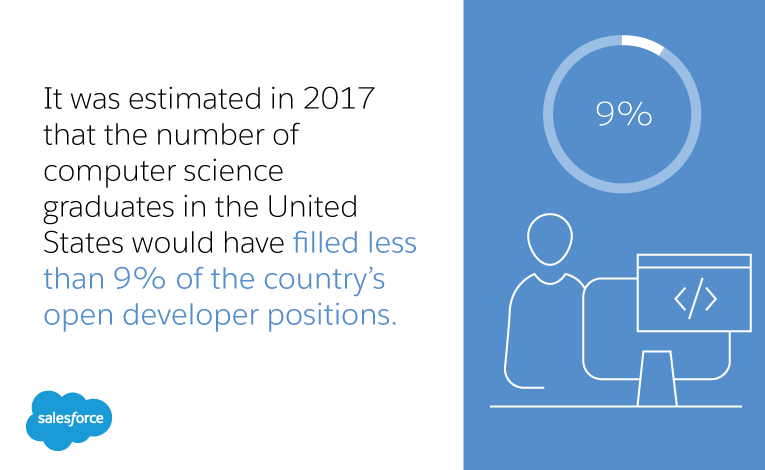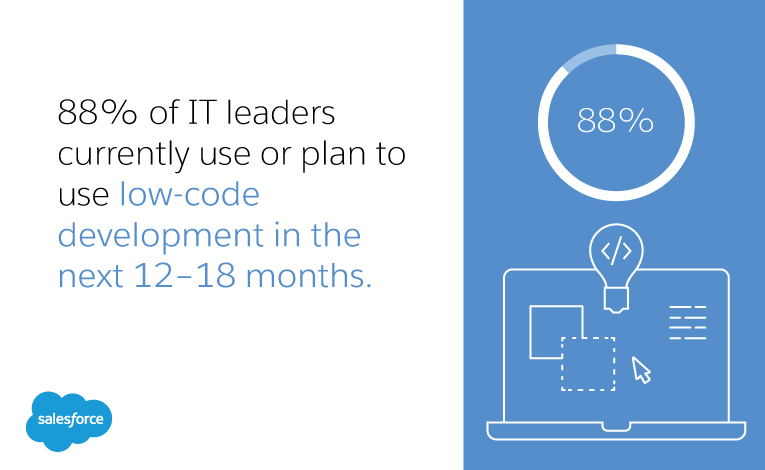Mobile App Development: How It’s Easier Than You Think
The world’s going mobile, and the shift to a mobile-first world is happening not just in everyday activities, but in the way we do business. Everything from the way we consume web content to the way we interact with others is going mobile, and we want technology that enables that. In fact, 70% of employees now expect the same level of technology at work as on personal time. In short, employees expect to be able to solve problems and engage with each other and with customers while on the go. They’re increasingly shifting toward mobile apps and solutions to do so.
With this shift, it’s critical that companies invest in mobile app development to better serve not only their customers, but their employees as well. As the way information is consumed and the way processes are performed is going mobile, companies must adapt accordingly. But what exactly are the many benefits of mobile app development, and how do you go about improving your company’s ability to develop these mobile apps? That’s what we’ll cover in this article.
What are the benefits of in-house mobile app development?
There are a number of benefits to focusing time on mobile app development. While it may seem like a considerable investment of time and monetary resources, you’ll find that bringing app development in-house is a lot easier than you might think and offers a slew of advantages:
In-house mobile app development increases productivity
In-house app development improves customer satisfaction, acquisition, and retention
- In-house app development means customizability and improved processes
In-house mobile app development increases productivity.
In-house app development improves customer satisfaction, acquisition, and retention
In-house app development means customizability and improved processes
What are some specific use cases of mobile apps for businesses?
There are a number of use cases for mobile apps. Many different types of businesses benefit from custom mobile app development, but in different ways. Some companies, for example, develop mobile apps to improve internal workflows and better connect customers or clients to the specific teams handling their concerns. Others use client-facing mobile apps designed specifically for their customers or clients.
One company does consulting and they built an app that seamlessly transfers specific client information right into the correct team’s workflow. This greatly lessened the burden of communication upon a project manager who acts as the go-between from the client to the various teams. The result of a mobile app? One fluid and intuitive process for handling client concerns.
An insurance agency developed a mobile app to easily connect insurance agents with the client information they need. Now, instead of agents or reps having to hunt and find information, they use a mobile app that highlights the information from contact records and also pulls in other relevant information regarding cases and opportunities. Hours of headache and searching have been eliminated due to some simple mobile app development.
An innovative cancer detection health company developed a mobile app that allows people to be recommended to clinical trials based on the specific type of cancer diagnosis they have. The app is backed by clinical data from pharmaceutical companies and clinical trial companies. The idea is to give a patient a recommended clinical trial within 10 days of a blood sample being returned. The app is very simple. Reports and dashboards are easily accessible, and it also allows patients to enroll in clinical trials quickly through an approval process.
The hurdles to mobile app development are quickly being jumped.

These concerns are not unfounded. For one, a developer talent shortage has been noted in recent years. In fact, it was estimated in 2017 that the number of computer science graduates in the United States would have filled less than 9% of the country’s open developer positions. A Forrester report predicts a gap of 500,000 developers by 2024 in the U.S. alone.
In addition to the simple lack of talent resources, many organizations worry they lack the time or the monetary resources to develop quality apps. That, however, is a common misconception, as the solutions have been there all along. What are those solutions? Low-code mobile app development platforms.
Low-code app development platforms offer robust solutions for non-coders.

With the availability of low-code app development platforms, the growing popularity of these solutions is becoming ever more apparent. In fact, a survey found that 88% of IT leaders currently use or plan to use low-code development in the next 12–18 months. As low-code app development solutions becomes more sophisticated, IT leader interest has skyrocketed. That interest has grown from 52% to 76% over the last two years, and additional climbs are projected. The beauty of low-code solutions is that they empower IT’s nontechnical partners to solve their own business problems.
Learning how to develop an app is incredibly time-consuming, or at least it used to be. With low-code solutions, the learning curve that was once steep has now been flattened, putting non-coders on a more even playing field with their code-savvy counterparts. It all means quicker development cycles, and time and money savings. In fact, 63% of IT leaders believe that low-code development will positively impact the software development cycle, enabling business users to deploy applications more quickly.
Meet the Salesforce Platform Mobile for low-code development.
The Salesforce Platform Mobile for low-code mobile app development offers a slew of benefits:
Empower anyone to easily build, design, and publish mobile apps for everyone
No-code mobile tools: Design a custom mobile app or community with pre-built components, and templates
Low-code mobile services: Use nothing but clicks to add mobile services for business logic, integration, and intelligence
Mobile publisher: Push your app all the way to your employees and customers in the app stores — no hassle
Easily integrate customer data from Salesforce CRM into your mobile app for a 360-degree view of your customers
Get hands-on, targeted learning through Trailhead
Benefit from automatic platform updates and easy scalability
Develop mobile applications more quickly with pre-built apps and solutions
Use the platform to easily collaborate with others to build apps
The benefits of using the Salesforce Platform Mobile for mobile app development go well beyond the list above, specifically when it comes to return on investment. By the numbers, below are some specifics.
Building apps on the Salesforce Platform Mobile results in a robust ROI:
545% five year ROI
29% higher app developer productivity
62% more efficient IT infrastructure management
$3.74 million higher revenue per year per organization
6-month payback period
83% less unplanned downtime
57% faster IT development lifecycle
72% fewer releases with errors
Getting started with the Salesforce Platform Mobile.

Headline: Learn how Salesforce Platform Mobile lets anyone build low-code mobile apps.

See the Future of IT.


